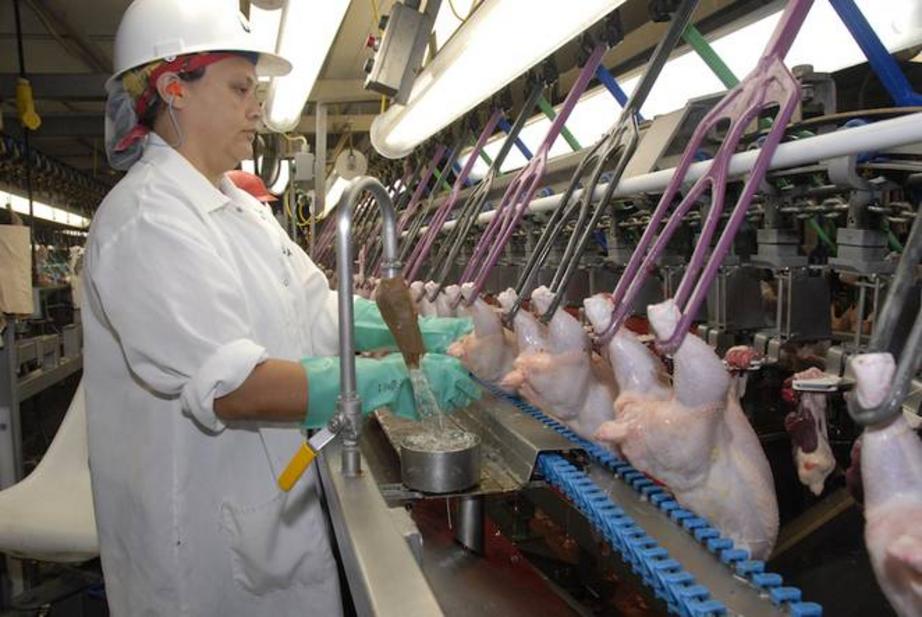Chicken plants in Midwest are human labor camps
When a judge sends a defendant to the 'Chicken Farm,' it's considered worse than jail by some.
There are a lot of reasons to steer clear of industrially-farmed meat. From the filthy, cramped conditions in which animals are kept to the rampant disease and excessive antibiotics used to promote artificial growth, the whole industry raises serious ethical and environmental questions.
But now there's yet another reason to question the origins of industrial meat. A recent investigation by Reveal News for the Center for Investigative Reporting has found that some chicken processing plants in the Midwest are, essentially, slave camps where men and women are sentenced to work hard for free in horrific conditions, all under the guise of rehab.
There are contradictory opinions as to the true purpose of the work camps. The main processing plant featured in the report, Christian Alcoholics & Addicts in Recovery (CAAIR), owned by Simmons Foods, Inc. and located in rural Oklahoma, promotes itself as a treatment center; however, "the program mainly relies on faith and work to treat addiction"; is unregulated by the state; and has only one licensed counsellor (out of three in the entire 280-person facility).
Meanwhile, a court administrator named Vicki Cox told reporters that participants are not sent to CAAIR for drug or alcohol treatment. "The referral is to assist the participants in developing good job skills, life skills, work ethics and personal care skills."
Despite this, reporters found that "drug court staff repeatedly described CAAIR as treatment in court records," which Cox dismissed as a record-keeping error.
So, which is it, and what is really going on?
The workers themselves have a different take on things. They describe a hellish work environment, standing in front of speeding conveyor belts in a frigid poultry plant, "pulling guts and stray feathers from slaughtered chickens destined for major fast food restaurants and grocery stores."
To make matters worse, injuries are not properly treated and are often viewed by bosses as a way to get out of work. Brad McGahey, whose hand was mangled in a machine, recalls being told by CAAIR administrators, "You can either work or you can go to prison. It's up to you." At that point McGahey chose prison, because "anywhere is better than here."
"The program mainly relies on faith and work to treat addiction."
There is a serious conflict of interest, with the processing plants making enormous profits off the free labor. In the seven years since its founding, CAAIR has brought in more than $11 million in revenue. The workers also fill a labor void, resolving an issue faced by many of these processing plants prior to the creation of programs like CAAIR and without which they'd likely be forced to shut down.
Is this even legal?
"Legal experts said forcing defendants to work for free might violate their constitutional rights. The 13th Amendment bans slavery and involuntary servitude in the United States, except as punishment for convicts. That’s why prison labor programs are legal. But many defendants sent to programs such as CAAIR have not yet been convicted of crimes, and some later have their cases dismissed."
The entire report adds a horrifying human dimension to the world of industrial meat production, extending the question of welfare from animals to the humans who process their carcasses. It's certainly enough to put one off KFC and Popeye's chicken forever, as CAAIR is a supplier.
It will be interesting to see what results from this investigation. It has certainly shocked many people, including the American Civil Liberties Union of Oklahoma, which is now considering legal action in response. And yet, as the report concludes, CAAIR continues to expand with plans for yet another dormitory to house more laborers. Sadly, as long as demand for industrially-produced meat remains high, without the ethics of production being questioned, these injustices are likely to persist.
For the rest of this article please go to source link below.

